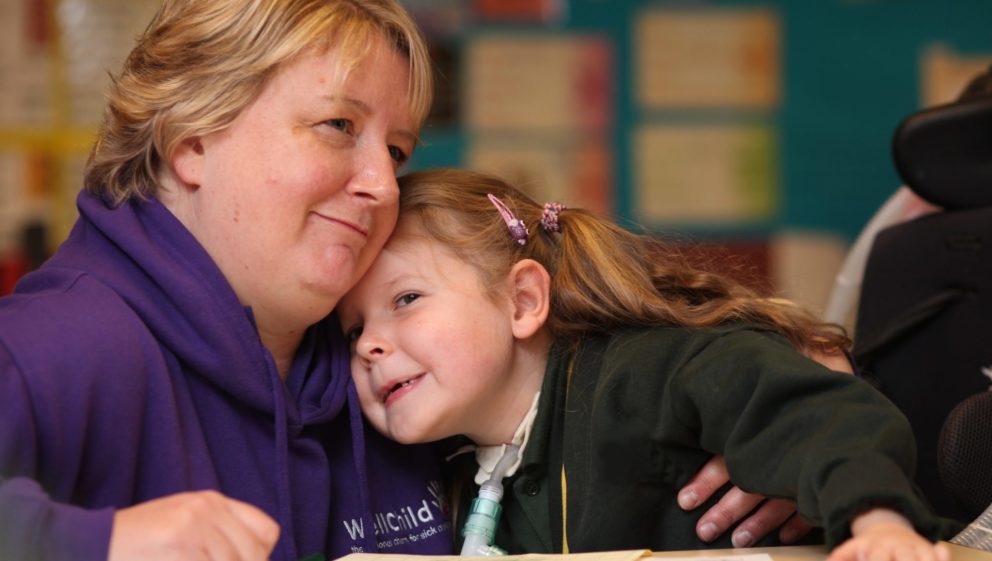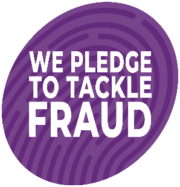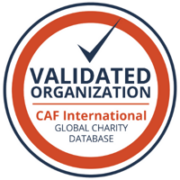WellChild calls for equal treatment for complex needs children stopped from returning to school by government rules

As we reach half term, children with complex health needs across the UK are still being prevented from going back to school because of official advice on COVID-19. WellChild is calling on the Government to change its rules to make it easier for them to get back to the classroom before they miss any more of their education.
Children who rely on a breathing tube sometimes require suctioning or other procedures to clear their airways and help them breathe. These are known as Aerosol Generating Procedures (AGPs) because they produce tiny droplets in the air, but current Government COVID-19 guidance around how to manage AGPs in school is preventing children from coming back. This is despite medical specialists in the field advising these measures aren’t necessary as these AGPs pose no additional risk to other children and staff. WellChild argues that these procedures pose no more risk than other children coughing or sneezing in class and that the guidance around AGPs must urgently change.
Under the current rules the child and their carer must go through an elaborate procedure to get the help which would normally be administered straight away in the classroom in minutes. Under the rules, they and their carer must be taken to a separate room, which might be some distance away from the class. The carer must dress in full Personal Protective Equipment (PPE) to carry out the procedure before the child can return to class. This lengthy and disruptive process might happen numerous times during the day and sometimes might be needed in an emergency.
A survey being run by WellChild among families, through its Family Tree support network, has already identified 30 children who have been told they cannot return to school, even though they are well and able to do so. In many cases schools do not have the facilities or resources to comply with the rules so are being forced to tell children they cannot come back.
But these children have no symptoms of COVID-19, otherwise they would not be in school. WellChild believes that in this case complex needs children are being discriminated against by Government rules and should be treated just the same as other members of the class, rather than singled out for special treatment.
Among those children affected is eight-year-old Grace from Manchester who has the rare Pierre Robin Syndrome where babies are born with a small lower jaw and a cleft palate. For some this can result in airway obstruction, which affects their breathing. Grace has an open stoma covered with a bib for airway safety and occasionally requires suctioning. Her mother Lauren has been told by Grace’s school that they cannot have her back to class as they do not have separate rooms available so simply cannot meet the guidance requirements. She is worried about Grace catching COVID-19 but feels it is very important in terms of Grace’s mental health for her to return to school.
Grace’s condition has left her with complex needs and profound learning difficulties. She needs physiotherapy and occupational therapy which she accesses through school which is why it is vital she return.
Lauren said: “Since school closed, we have not had any access to these therapies. I worry that Grace will suffer as a result despite my best efforts to be mum, carer, nurse and therapists in one, I worry that it’s just not good enough. We have also had to stop any respite that we previously had, meaning that, combined with no school, we have simply been left, as I’m sure most other families with complex children have.”
WellChild Chief Executive Colin Dyer said: “Why is this group of children being singled out for special treatment which, in many cases, is preventing them from returning to school? The rules as they stand assume they have COVID-19, which is not the case. They should be treated the same as any other child. If a child is well and has no symptoms, they should be allowed to return to school without regulations being placed in their way which prevent them from doing so. The safety of all children and staff at school is vital but children with complex care needs should not be discriminated against because of their health needs.
Returning to school is vitally important for these children, not just for their development and emotional wellbeing, but also as a source of much needed respite for parents, many of whom have been delivering round–the–clock care with no support ever since lockdown began.”
The National Tracheostomy Safety Project has provided its own expert-led guidance for supporting children back to school, which says: “We suggest that aerosol PPE should not be required for tracheostomy cares such as suctioning in the setting of a well, asymptomatic child who is able to attend school. Droplet precaution PPE is recommended where possible. This is supported by PHE guidance on AGP in low risk patients. If suctioning is required if there is a separate space available then this is can be used, but on current data this is certainly not essential. There is no evidence to suggest that suctioning in the classroom poses additional infection risks to staff or other children.”
WellChild is calling on the Government to listen to the guidance issued by the National Tracheostomy Safety Project and adapt the rules to make school more easily accessible for all children across the country.




